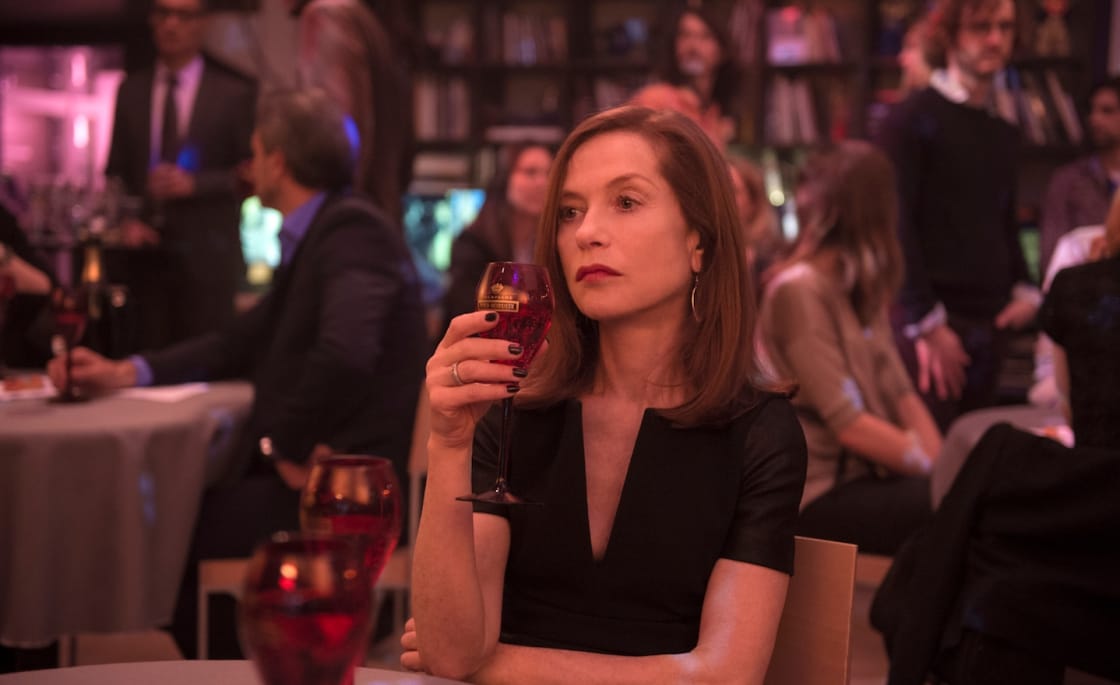
It’s the kind of opening you aren’t likely to forget anytime soon: as the credits fade out, the camera lingers on a cat watching dispassionately as its owner, middle-aged Parisian businesswoman Michele Leblanc (Isabelle Huppert) is in the process of being raped. In the aftermath of the attack, she gets up, cleans the shattered glass, washes herself, throws away her clothes and orders sushi for her and her son.
Cut away the first three minutes and you would be wondering why she sleeps with a hammer in her bed. She doesn’t call the police, either. Rather she just goes to the hospital and later the video game company she owns with her friend, Anna (Anne Consigny).
That’s just the start of the myriad of complications at work in this blackly comedic, wildly subversive film, which just this weekend was awarded two Golden Globes: Best Foreign Language Film and Best Actress.
Although maybe that shouldn’t have been that big of a surprise.
After all, Director Paul Verhoeven built his Hollywood career on making dark, cutting satires disguised as blockbusters filled with violence and sex.
“Elle” is nothing if not an entertaining movie despite the subject matter, and it’s precisely because of these contradictions that the parts all manage to come together and avoid being the misogynistic mess it could have been. Every step of the way it zigs where you expect it to zag. Subverting expectations and keeping the viewer off guard as to what could happen next.
But the glue holding the whole enterprise together is the 63-year-old Huppert. The actress has had a long and storied career, and in this film she’s found what may be the most challenging and best performance she’s ever given.
As scripted by David Birke (who wrote the script in English then translated it), Michele is practically every negative thing men say about women: she’s an ice queen of a boss, is openly hostile to her son’s girlfriend and at times acts jealous around her ex-husband.
On top of that, she’s also sleeping with Anna’s husband and flirting with her married neighbor.
Huppert takes these qualities to heart, unafraid to make Michèle seem unsympathetic even as she seems intent on destruction. She doesn’t care if you understand why she’s doing it, and it’s thrilling to see what she does next as you look for some sign of the thought process going on in her face. Her willingness to dive deep into the character’s psychology pays off in dividends once she begins the hunt for the rapist, leading to a second act reversal of roles that’s brilliant in its implications.
“Elle” is perhaps the boldest and smartest film ever made about rape. It acknowledges that not everyone reacts the same way to a violent trauma and refuses to paint its characters as strictly right and wrong.
The most provocative thing it suggests is that rape is a crime of power rather than desire, and that the most powerful thing a woman can do is turn those power dynamics around.
“Elle” doesn’t offer any easy answers or feelings, but it’s this precise feeling that makes it among the best of the year.

